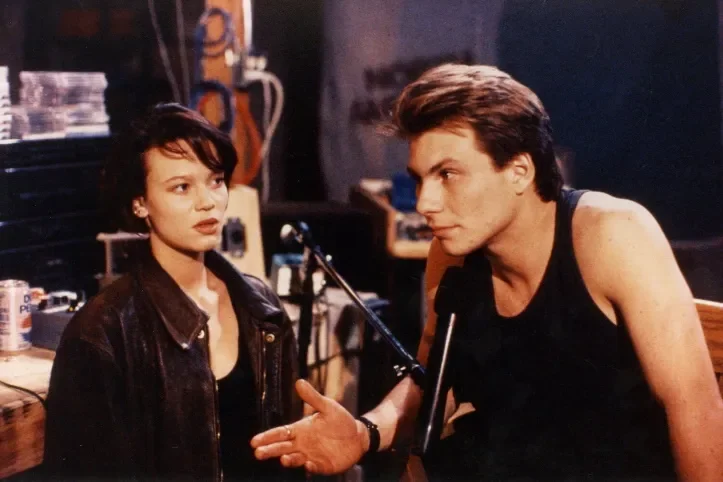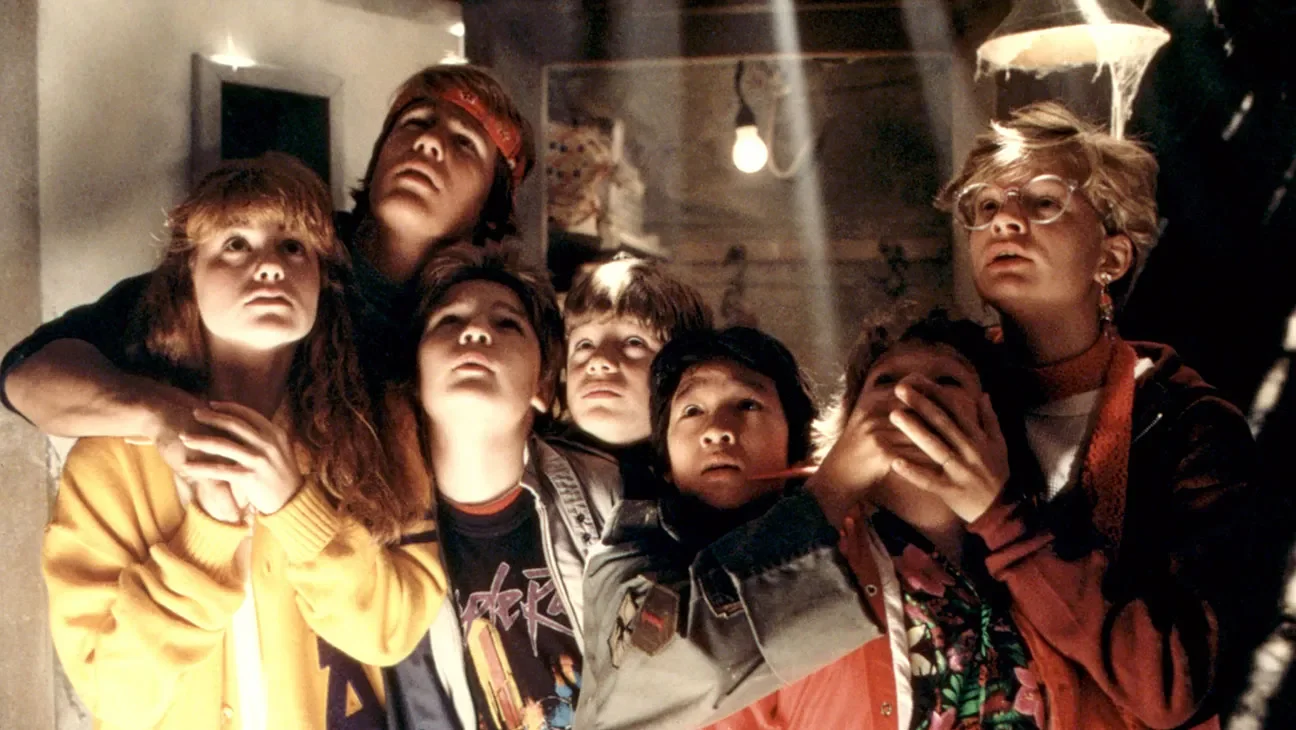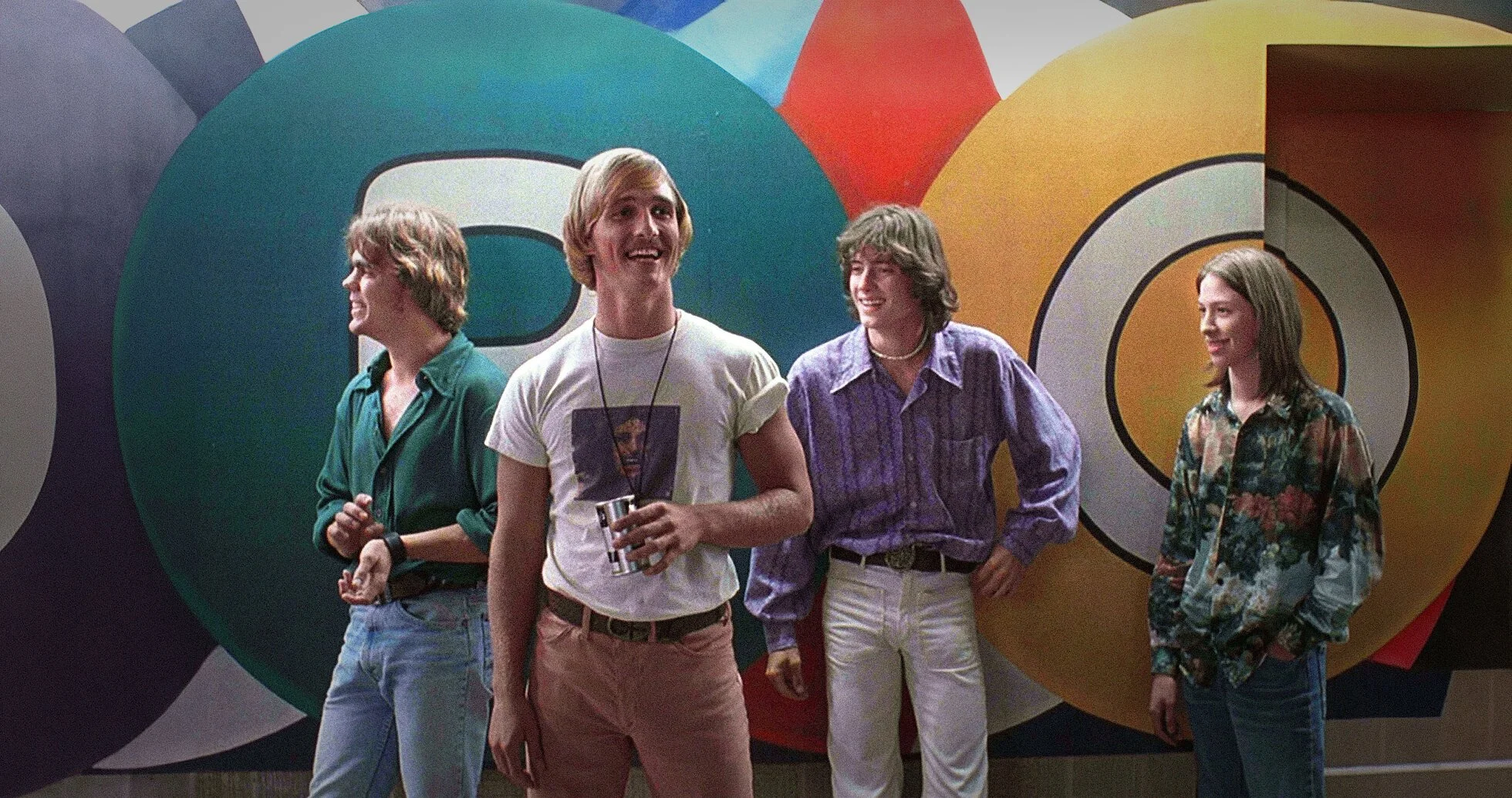Pump Up the Volume
(Allan Moyle, 1990)
⭐️⭐️⭐️⭐️ 1/2
“High school is the bottom.”
While many high school and teenage based movies share a similar sentiment, very few say it in such plain and clear terms. A smart high school movie understands that one’s teenage years are rife with internal and external turmoils and existential dread about the future. Everyone is screwed up with angst during this incredibly formative years, and trying to sugarcoat things is counterproductive. Having someone that will listen to you and understand your perspective is vital. Teenagers need a voice to rally around. “Pump Up the Volume”, the 1990 film directed and written by Allan Moyle”, understands this quite well and establishes a voice broadcasting on the waves of a pirate radio signal.
“Pump Up the Volume” revolves around the character of Mark Hunter (Christian Slater). By day, he is an unassuming and rather disconnected teenager attending high school in a growing Arizona suburb filled with identical looking houses. Mark has been brought to Arizona from New York by his mom Marla (Mimi Kennedy) and father Brian (Scott Paulin), a school system administrator. To combat the loneliness and boredom of suburban life, Mark creates an alter ego for himself and broadcasts a pirate radio show that the other disaffected youth in his community latch onto with devotion. That alter ego is “Happy Harry Hard-on”, a fast and foul talking personality who knows everything is screwed up and kids out there need a voice to tell them as much. They need a voice because Mark’s school is run by Loretta Creswood (Annie Ross), a principal with a vendetta against any troublemakers who might bring down test scores. She is aided in this illegal scheme by her goon of an assistant principal and a feckless guidance counselor. All the while, Mark’s classmate Nora De Niro (Samantha Mathis) writes passionate letters to Harry and begins a search to try and find his true identity, which leads her to Mark. Things are further complicated when one of Harry’s listeners commits suicide, and the impact of the pirate broadcast intensifies across the community. The responsibility of what Mark has created as Harry becomes a burden that he must choose to either abandon or fully accept.
Without Slater’s maniac acting style, a style that has earned him criticism over the years for being a clone of Jack Nicholson, “Pump Up the Volume” would fail tremendously, no matter the good intentions of Moyle’s script and direction. Large portions of the movie are simply Mark’s radio broadcasts as Hard Harry. This allows Slater to rant and rave, seemingly at will and with an improvisational spirit, as if he was really sending this film’s pirate radio broadcast across the airwaves. Slater is in his element in these scenes and channels his manic acting style into Harry’s sexually-fused broadcasts, the moments of serious truth he presents, and even when he tries to talk down the suicidal student or listens to the story of a gay student. The switch is then flipped when Slater has to revert back to Mark’s ordinary existence while at school or dealing with his parents. Slater plays Mark like a superhero trying to hide his secret identity from the rest of the world via a reserved and quiet existence. Hard Harry can talk a mile a minute while on the air and not having to look people in the eye. Mark, on the other hand, says very little, even to an increasingly curious and suspicious Nora, when confronting someone face to face. Mathis, who brings great vibes as the cool art girl in high school archetype, does a fantastic job with her role as Nora and helping Mark see he just cannot abandon what he created.
“Pump Up the Volume” would also fail tremendously if Moyle did not do such an admirable job of presenting the key thesis of the film, which is high school, for the most part, sucks, suburban life is suffocating, and everyone is pretty much screwed up during this time in their lives. The film very smartly chooses to show all the students in the school listening to Harry’s broadcasts. It even includes a subplot of Paige Woodward (Cheryl Pollak), a popular and “perfect” girl who snaps under the pressure put upon her by the school and her family. A lesser teen movie would have Paige and her friends vehemently opposing Harry’s broadcast in a way to do a “snobs” vs. “slobs” type of film. Thankfully, “Pump Up the Volume” does not go that route. There are no antagonists when it comes to the student body. All of the students are behind Harry what he is saying, and the rebellious music he is introducing to this boring community. Things get a bit heavy handed during the plot involving Creswood and her goons expelling the troublesome students and when the F.C.C. descends on the town, but those elements can be excused for the most part. None of these adults, even the seemingly good intentioned ones, are really listening to what Harry or the other kids are actually saying. Harry is the only voice out in the void.
One aspect one must also look at when examining “Pump Up the Volume” is the time and context in which the film is set. This is a film released in 1990, so, for all intents and purposes, things are still culturally the late 1980s. Popular culture is in a state of flux at this time, and no one really knows what might be coming down the pike. Harry shows his disdain for the 1960s, his parents’ generation, and an even bigger disdain for the culture of his time. He despises the vapidness and nothingness of the present day. Little does Harry know what is about happen in a couple of years when grunge and gangster rap shape the popular culture of the day. Moyle, on the other hand, seems to have somewhat of an idea based on the music presented in the film. The soundtrack is bristling with the early seeds of those genres. Mark might hate the present day, but I have a feeling he would connect heavily with what was just around the corner culturally.
The time and setting of “Pump Up the Volume” also plays heavily when looking at the film with a modern eye. Harry broadcasts a pirate radio signal and can say whatever he wants, free of any F.C.C. regulations that would be applied to regular radio broadcasts. In other words, Harry has the 1990 equivalent of a podcast. Moyle and Slater, of course, would have had no idea what a podcast was in 1990, but the format is right there in all of Harry’s on-air rants. If this film was remade, it would be about a rebel podcaster riling up their local high school. This also plays into the guilt of responsibility Mark feels when things get a bit too real. So many podcasters, the one who spew fire and bile to many impressionable youth, refuse to take responsibility for their words and the actions that result. “Pump Up the Volume” makes the effort to show the impact of what Mark is saying as Harry weighs heavily on him to the point of wanting to shut everything down until Nora snaps some sense into him.
While some of the elements of “Pump Up the Volume” might not have aged entirely well since 1990 and some of the angst might be a bit too much for an older audience, the core message remains vital and potent. Do not let people silence your voice. If you are screwed up, speak to your truth. Get the message out there. Do not accept the standard cookie cutter line of nonsense from toothless administrators or authority figures on a power trip.
In the words of Happy Harry Hard-On, TALK HARD!
This review is part of my From the Vault series showcasing movies of the past I have decided to visit or revisit and review.





“Weapons”, the 2025 horror film from Zach Cregger, examines how a community deals with a sudden and unexplained loss of elementary school children.